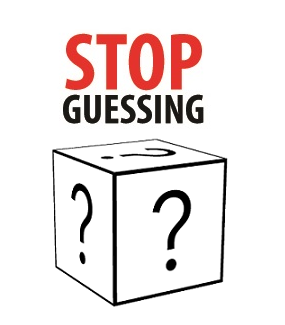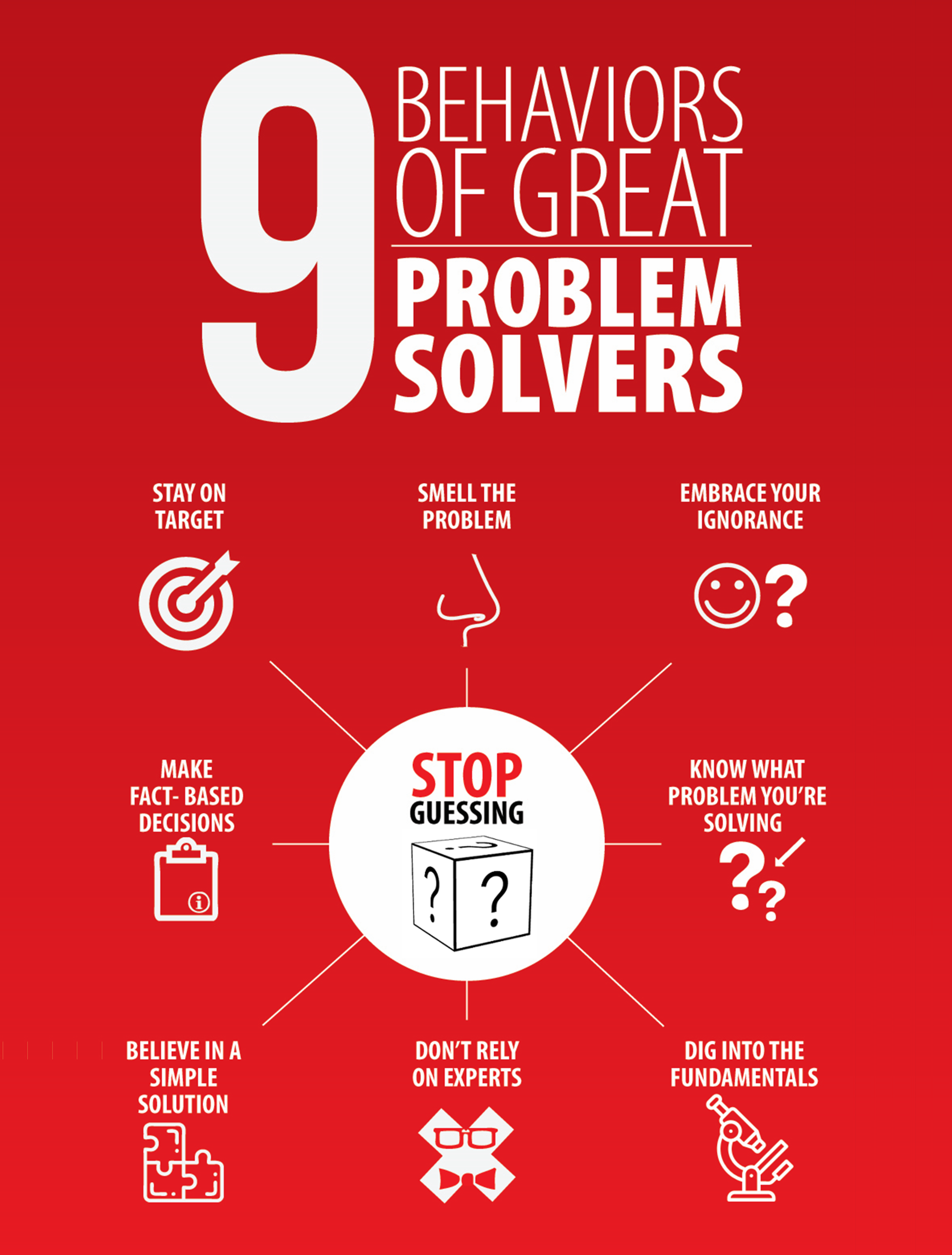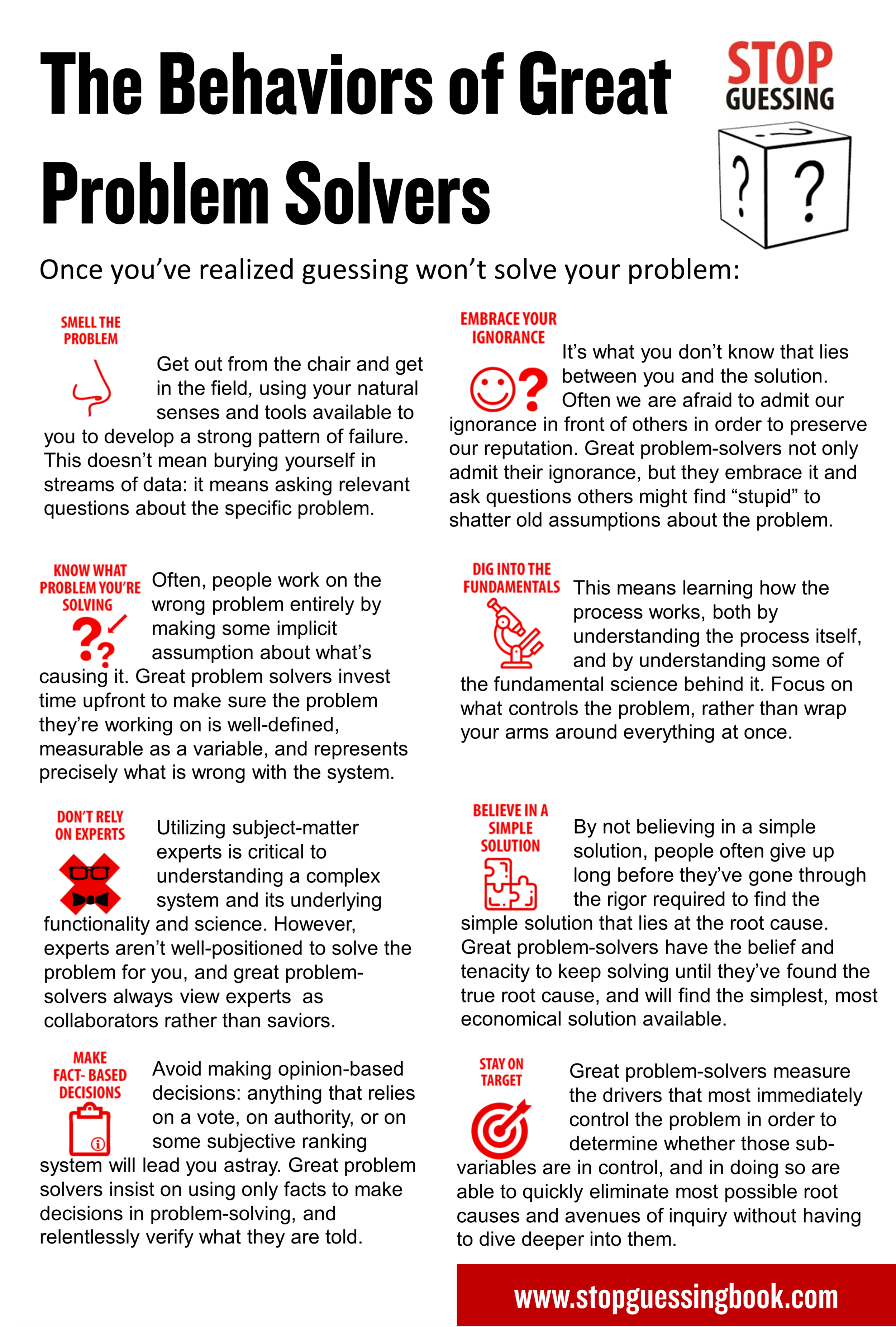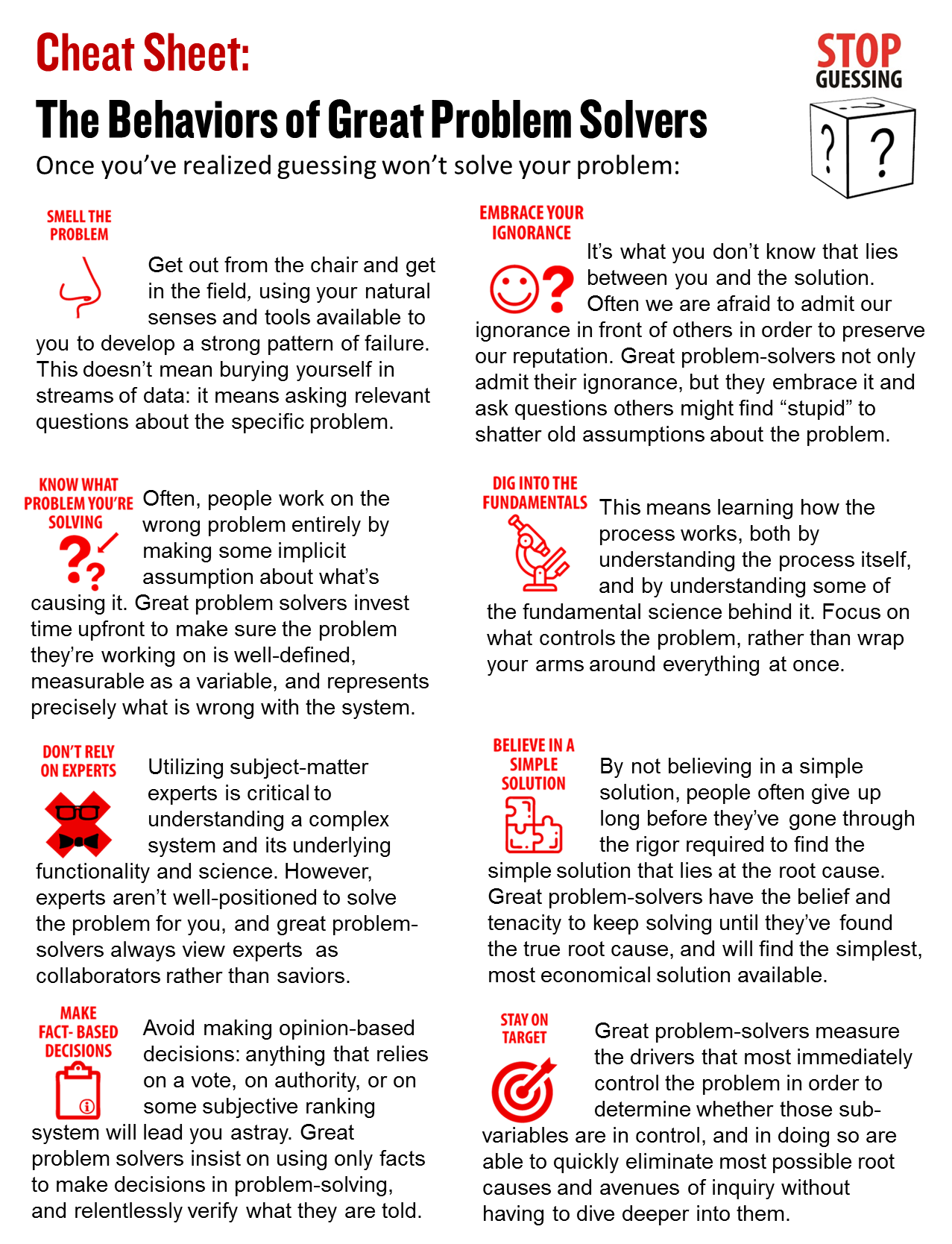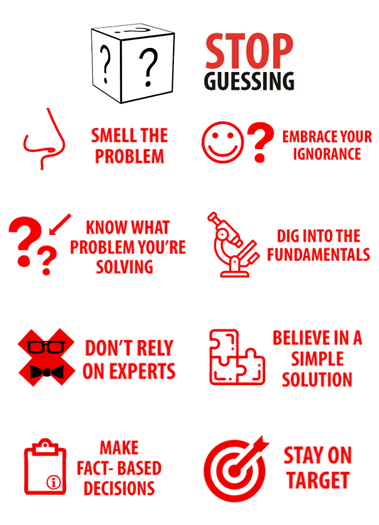Learn Your Greatest Problem Solving Strengths
Free Problem-Solving Videos










Variable Analysis
If you want to use the problem-solving process that Nat uses, you can learn more here: A brief introduction to Variable Analysis
Stroud On-Site Support
Looking for immediate help identifying and solving high-value hard problems in your business?
The 9 Behaviors
Stop brainstorming and stop just trying things out. After a few benign guesses at a hard problem, you’ll realize it’s hard, and it’s time to try something new. But nature abhors a vacuum, and if you don’t have other behaviours at hand, you’ll revert to your old ones. That’s where the other behaviours come in: they will help you to stop guessing at solutions and instead measure the problem.
Get out from the chair and get in the field, using your natural senses and tools available to you to develop a strong pattern of failure. This doesn’t mean burying yourself in streams of data: it means asking relevant questions about the specific problem. This behaviour can solve some moderately difficult problems right away and will be critical to solving hard ones.
Most people try to solve problems using the knowledge they already have about a process, but it’s what you don’t know that lies between you and the solution. Often we are afraid to admit our ignorance in front of others to preserve our reputation. Great problem-solvers not only admit their ignorance, but they embrace it and ask questions others might find “stupid” to shatter old assumptions about the problem.
Often, people work on the wrong problem entirely by making some implicit assumption about what’s causing it. Great problem-solvers invest time upfront to make sure the problem they’re working on is well-defined, measurable as a variable, and represents precisely what is wrong with the system or process.
Learn how the process works, both by understanding the process itself and by understanding some of the fundamental science behind it. By focusing on what controls your problem, you’ll be able to limit your digging to the parts of the process and the science that is relevant, rather than trying to wrap your arms around the entire thing at once.
Utilizing subject-matter experts is critical to understanding a complex system and its underlying functionality and science. Unfortunately, most people delegate responsibility for solving the problem to these subject-matter experts rather than driving the problem-solving process themselves. Sometimes internal and external experts aren’t well-positioned to solve the problem for you. Great problem-solvers always view experts as collaborators rather than saviours.
When confronting complex problems, it can be comforting to believe that the solution will be complex, as well. But by not believing in a simple solution, people often give up long before they’ve gone through the rigour required to find the simple solution that lies at the root cause, to great cost and detriment. Great problem-solvers will have the belief and tenacity to keep solving until they’ve found the true root cause and will be able to most easily and economically implement the simple solution that emerges.
Avoid making opinion-based decisions: anything that relies on a vote, on authority, or on some subjective ranking system of what decision to make is one of these opinion-based decisions, and it leads problem-solvers astray. Great problem-solvers insist on using only facts to make decisions in problem-solving and relentlessly verify what they are told. They check data streams to ensure that what they’re observing represents reality.
When problem-solvers dive deep into a problem, they too frequently seek to expand the number of possible root causes, so they can test them. They attempt to wrap their arms around the entire process and everything that could be causing it. This wastes time and resources and is unlikely to find the true root cause among hundreds or thousands of possibilities. Great problem-solvers measure the drivers that most immediately control the problem to determine whether those are in control. In doing so, they can quickly eliminate the most possible root causes and avenues of inquiry without having to dive deeper into them. This keeps them efficiently on-track, enabling them to find the true root cause.
Case Studies - Free to Download
Learn how using the right behaviors helped Nat's friends lose weight when nothing else worked
Learn how the problem-solving behaviors solved a $100MM pump wear problem at a refinery
Learn how a business rapidly turned around a major customer service problem by improving logistics and delivery times.
Posters and Cards
Free for download or available at high resolution on our store!
Click an image to open a downloadable PDF.

